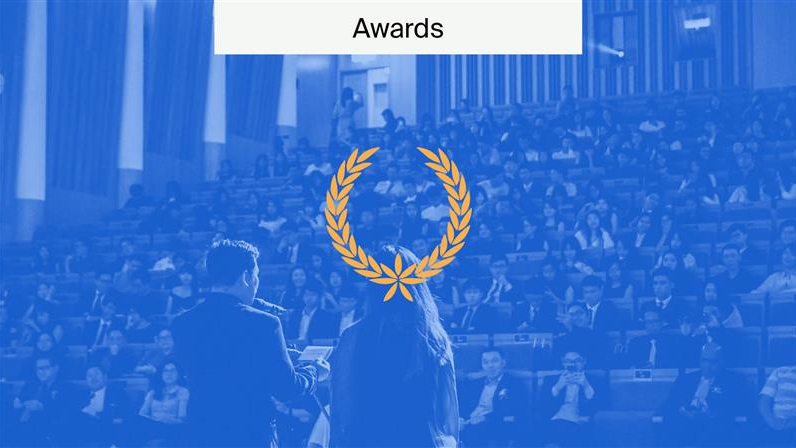
Early Career Researcher Awards
As an academic at the early stages of your career, navigating early career researcher awards and identifying avenues for greater recognition can be challenging. The pressure to excel at the beginning of your research career can be daunting. It can be made more daunting by witnessing the output and accolades of established researchers and academics.
Sometimes, issues such as a lack of early career research funding can get in the way of accessing reputable publications. This can become difficult to navigate if you don’t have a wide range of studies or research papers out there already. For these reasons, it is important to recognize the achievements of those who are early on in their careers. Hence, the value of early career researcher awards.
Here, we provide some valuable information on how these awards operate to make them a little easier for you to navigate
What are Early Career Researcher Awards?
Awards for early career researchers aim to provide better exposure for research that is innovative or groundbreaking. Like many other areas of early career research, the awards might be difficult to understand at first.
To make this easier, let’s have a look at eligibility, nominations, and how to increase your chance of receiving an award.
Eligibility for Early Career Researcher Awards
The definition of ‘Early Career Researcher’ (or ECR) varies. Broadly, it’s a term used to distinguish between more experienced researchers and those at the beginning or early stages of their careers.
Therefore, it can sometimes be difficult to know whether you’re considered to be an early career researcher. However, most of the available awards will have their own stipulations to provide clarity. These include the time since completing your Ph.D. Most awards have a maximum time limit of 10 years from the completion of your Ph.D.
Stipulations are often listed on dedicated pages such as the one provided in our journal Biomedicines for the 2022 Early-Career Women Award.
If you have a particular research interest and are curious about your eligibility for nomination, review the awards pages for our numerous journals. They provide concise information about what it takes to be considered for early career researcher awards.
Deadlines for award nominations differ across our journals, so make sure to keep an eye out for the dates provided too.
Nominations and the decision process
Generally, early career researcher awards aren’t open for submissions. Rather, awarding bodies will receive nominations which they then evaluate.
Nominations include recommendations from external scholars. These letters make the case for the nominee’s suitability for an award, and they are central to the decision-making process.
You do not have to have published with MDPI to be nominated for the MDPI Early Career Research awards. Again, this is something that can vary across the board, so it’s good to look into this when considering whether you meet the criteria for an award.
Nominees will then be reviewed by the journal’s board, or in the case of the Forests 2021 Early Career Investigator Award, an Evaluation Committee, which includes the Editor in Chief.
The process and terminology will vary slightly for individual awards. However, by reviewing the qualifying criteria, you’ll get some insight into whether you are eligible.
Increasing your chances of winning an Early Career Researcher Award
Some of the factors taken into consideration during the selection process for early career researcher awards are listed below.
- Overall academic background: This is verified through (usually external) recommendations and an individual’s Curriculum Vitae.
- The time elapsed since completing your Ph.D. In most cases, the acceptable time period is 10 years.
- The innovativeness of your research. The recognition of innovative research is prioritized in most academic fields; therefore, early career researchers who break new ground are often recognized for their achievements.
- Your anticipated academic potential.
- The relevance of your research to the topic for which the award is presented.
Knowing whether your research is innovative and gauging your academic potential can be difficult. However, keeping an eye on awards and finding publications dedicated to early career researchers can help.
At MDPI, we have Special Issues across our journals dedicated to ECRs. They’re a great place to start if you are not sure where to publish your research. They may also increase your chance of being considered for awards.
Early Career Researcher Award Prizes
So, what comes of early career researcher awards?
Typically, certificates and a cash prize are granted to winners of Young Investigator and Early Career awards. These are sent through to the winner and an announcement is made on the relevant journal’s webpage. These are great ways to promote your research.
It’s a great form of recognition to receive these awards, alongside receiving the more material prizes. Being recognized at the early stages of your career by award-granting bodies who consider you somebody to keep an eye on can help you to make a splash in your field.
Furthermore, receiving an award established by academic journals can secure you a space to publish future research.
For example, as part of the Applied Sciences 2022 Early Career Investigator Award, the winner is able to publish two papers at a discounted rate.
Other awards, such as the Viruses 2022 Early Career Investigator Award invite winners to speak at conferences. Conferences are an excellent place to discuss and debate research. They also provide access to research communities and leading academics in your field.
By attending conferences, you also have the added benefit of starting potential collaborations with others, which is an effective way to ensure your research is recognized.
How does MDPI support Early Career Researchers?
MDPI is committed to accessibility. Whether this is related to accessing or producing research. Early career researchers are key to the development of academic fields, which is why access to publishing and recognition are so important.
Many of the previous winners of early career researcher awards at MDPI have gone on to do great things. For example, Dr. Federico Baltar sat down for an interview with our blog team recently. They shared their experience of winning the Young Investigator Award 2021 for the journal Fungi. The interview will be made available in the next few weeks. It’s highly useful for any early career researchers looking for insight on how to develop their careers!
Being early in your research career presents unique challenges. Let us take some of the stress away. We’ve got so many articles on the MDPI Blog, with excellent advice about how to advance in your field. Take a look at our overview article on early career researchers to get started.










